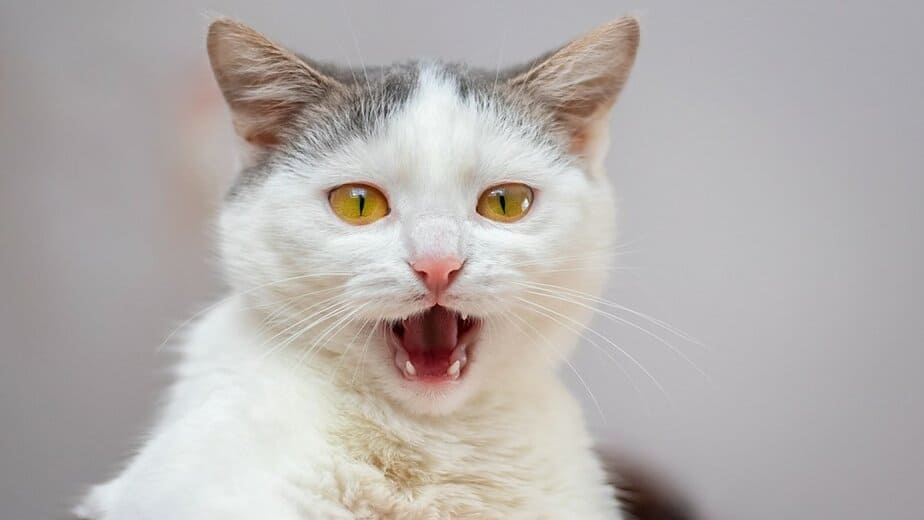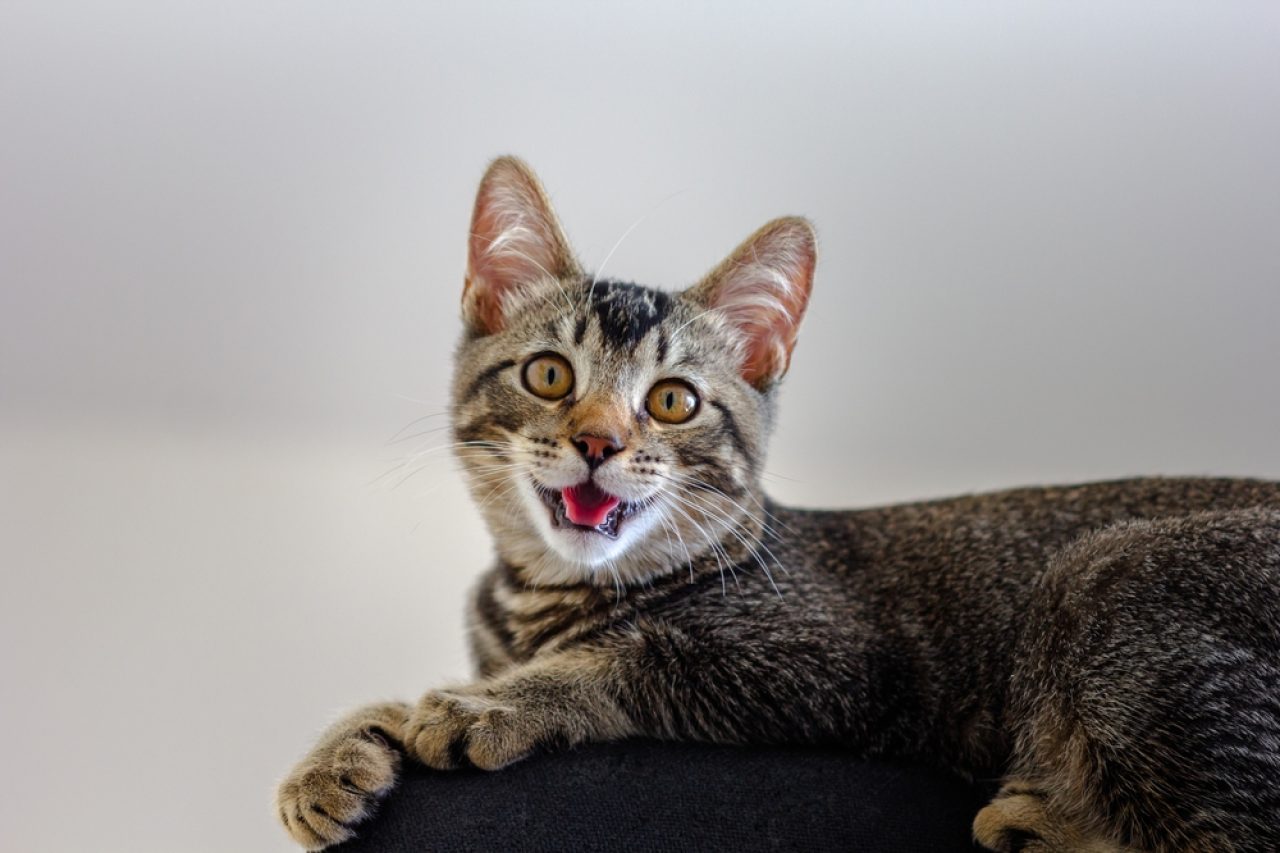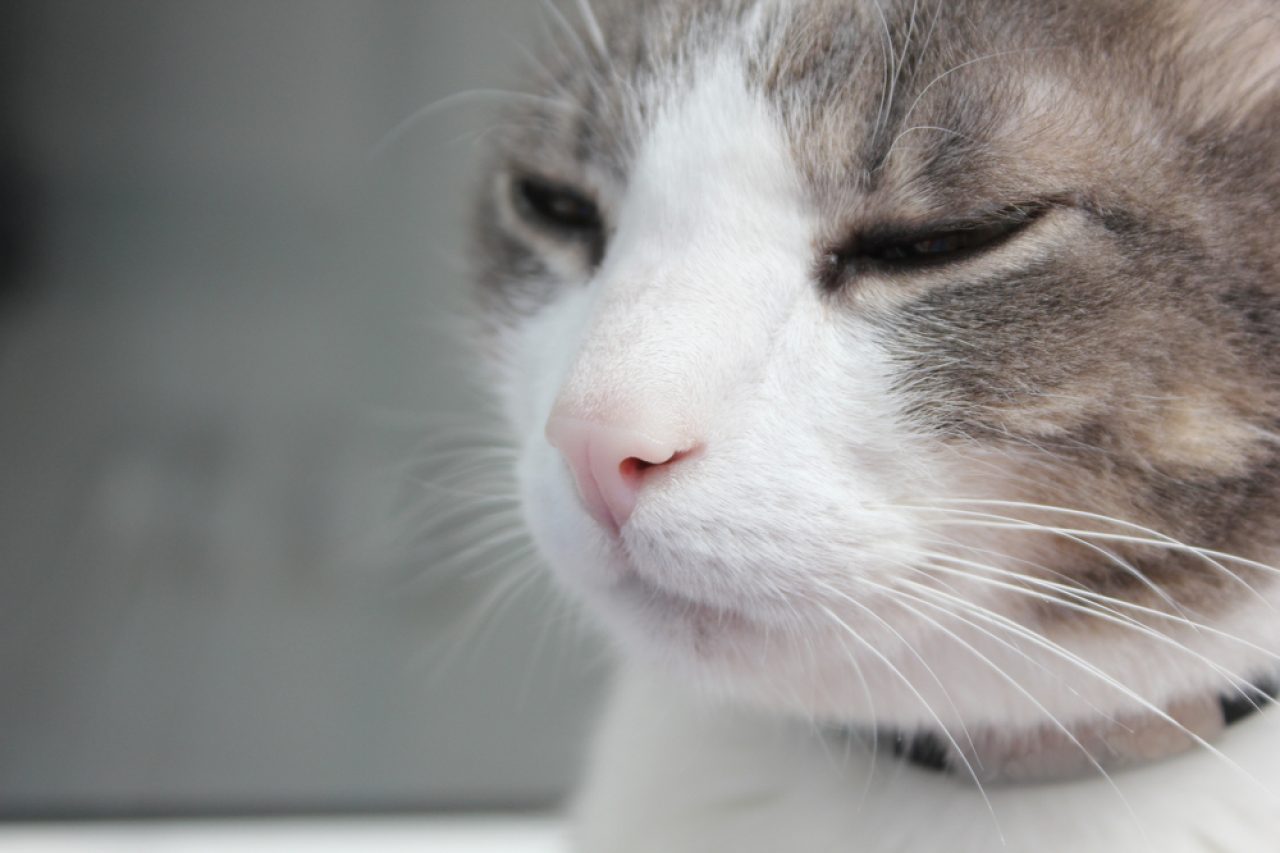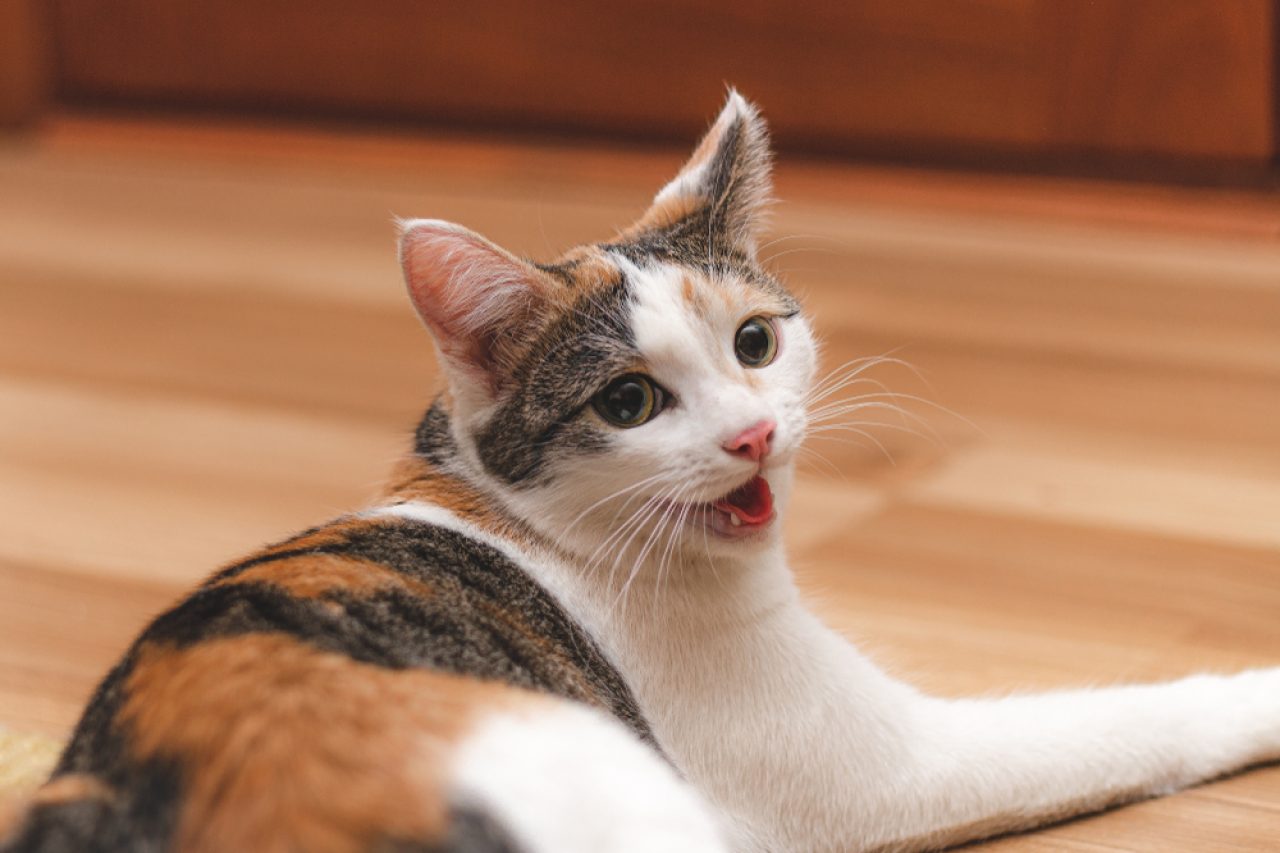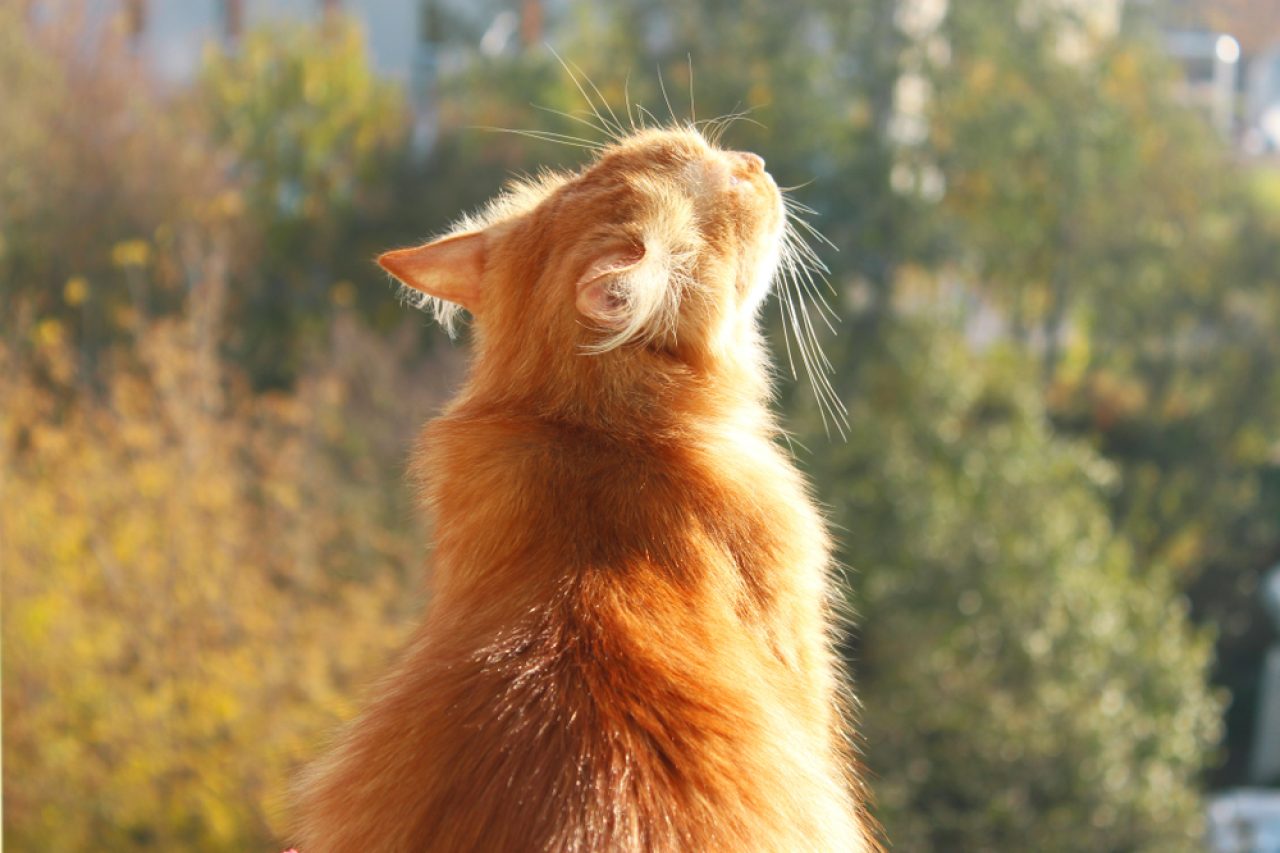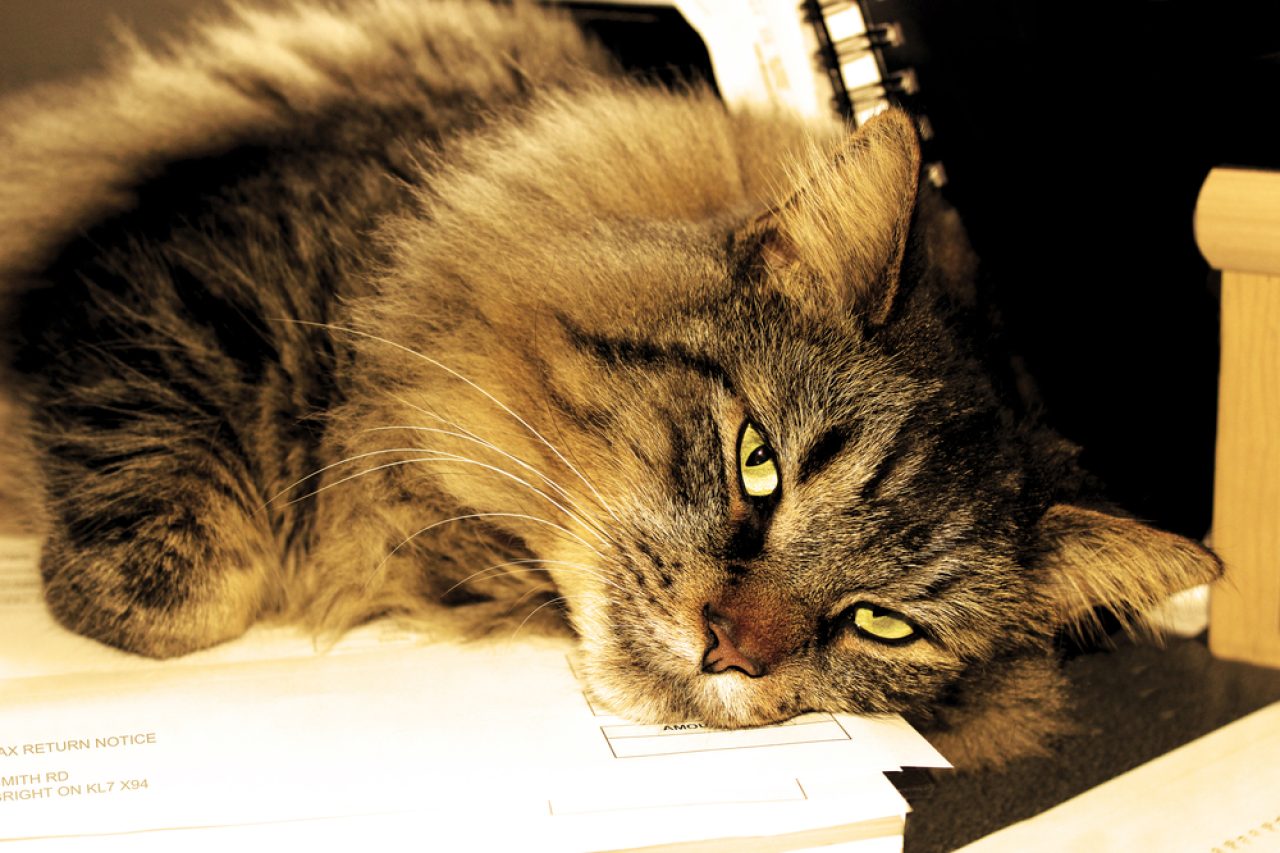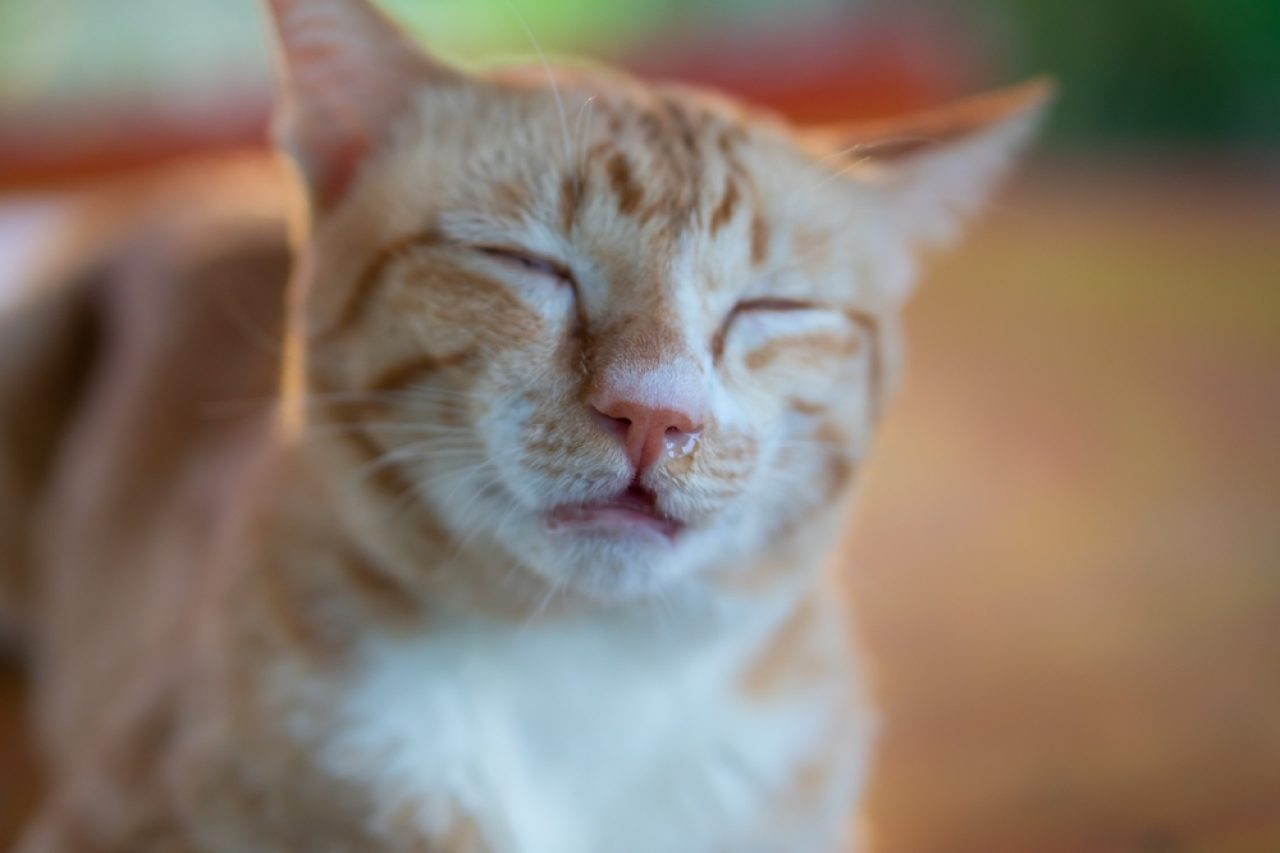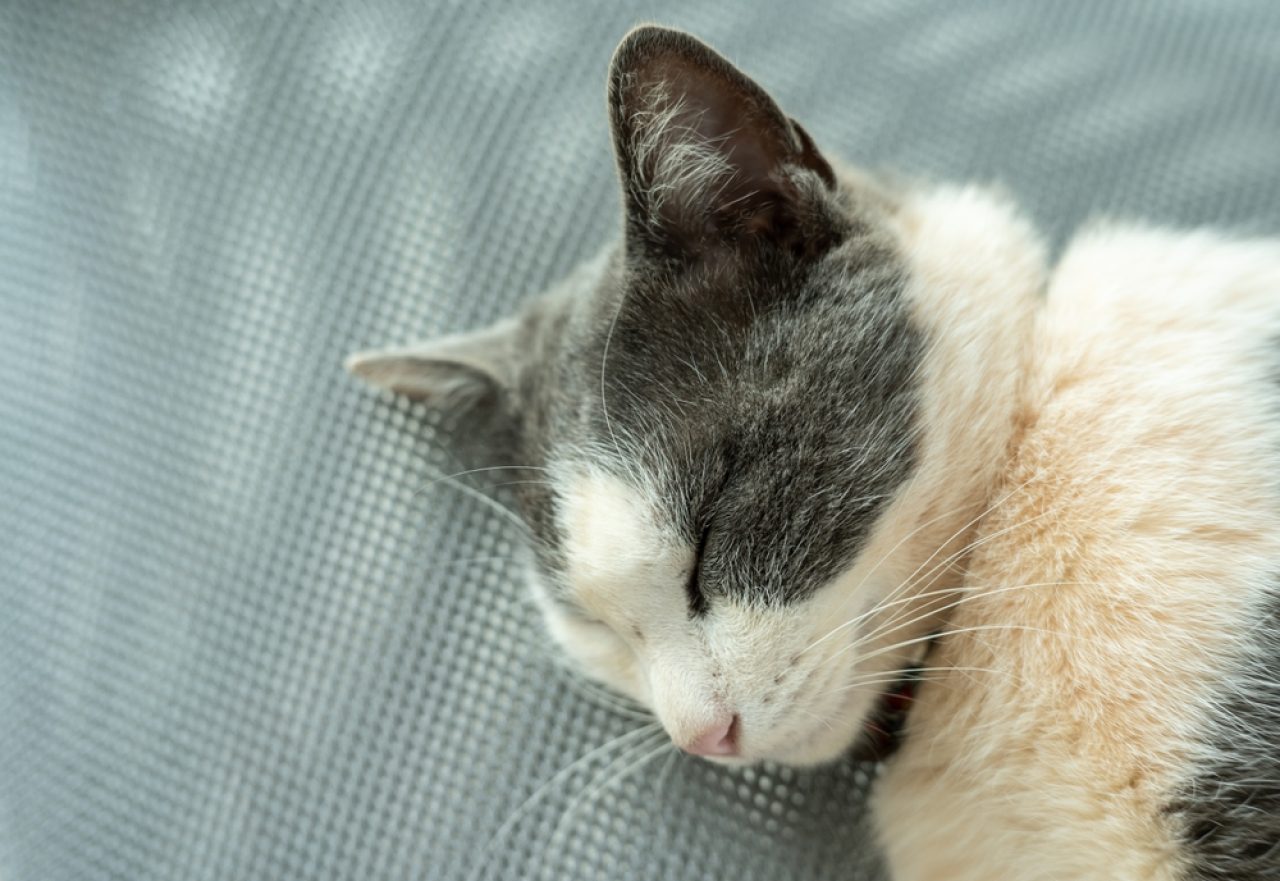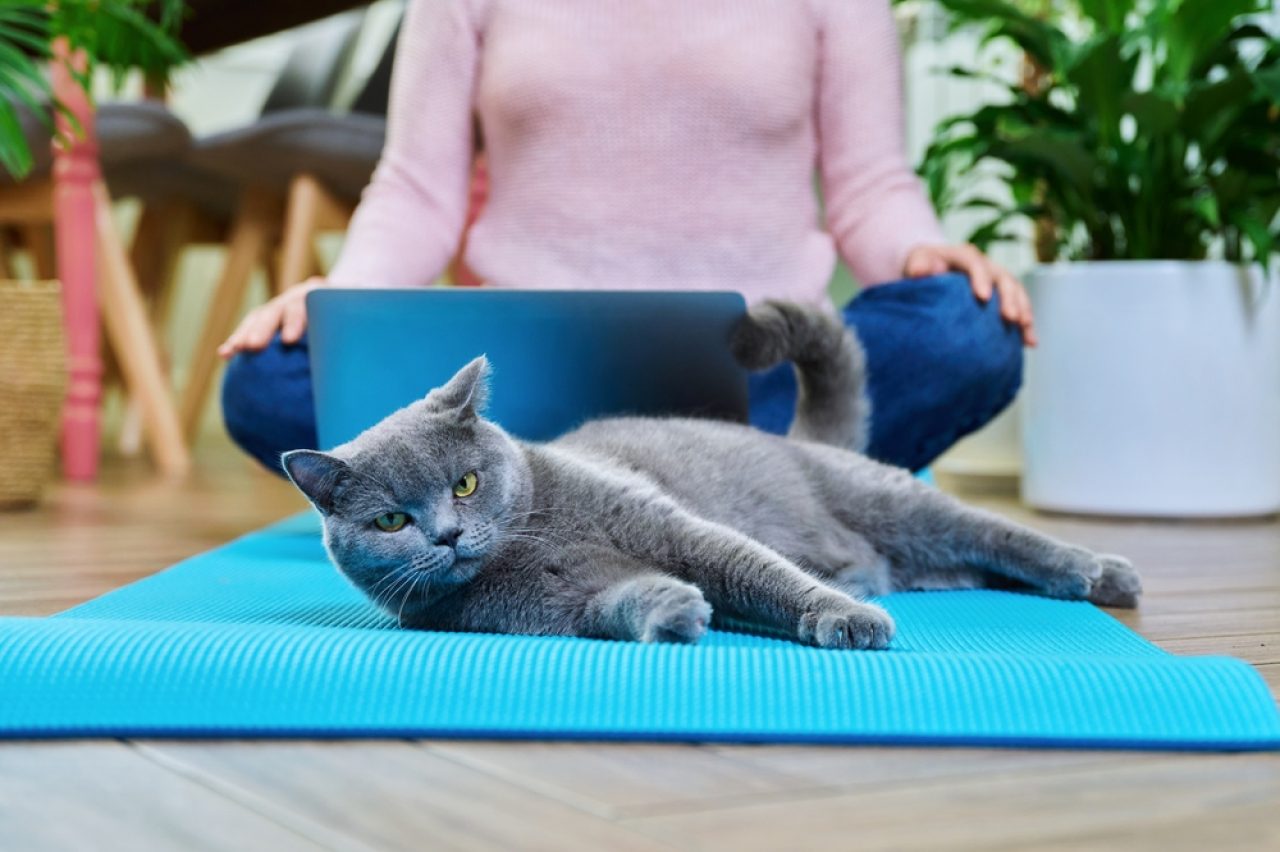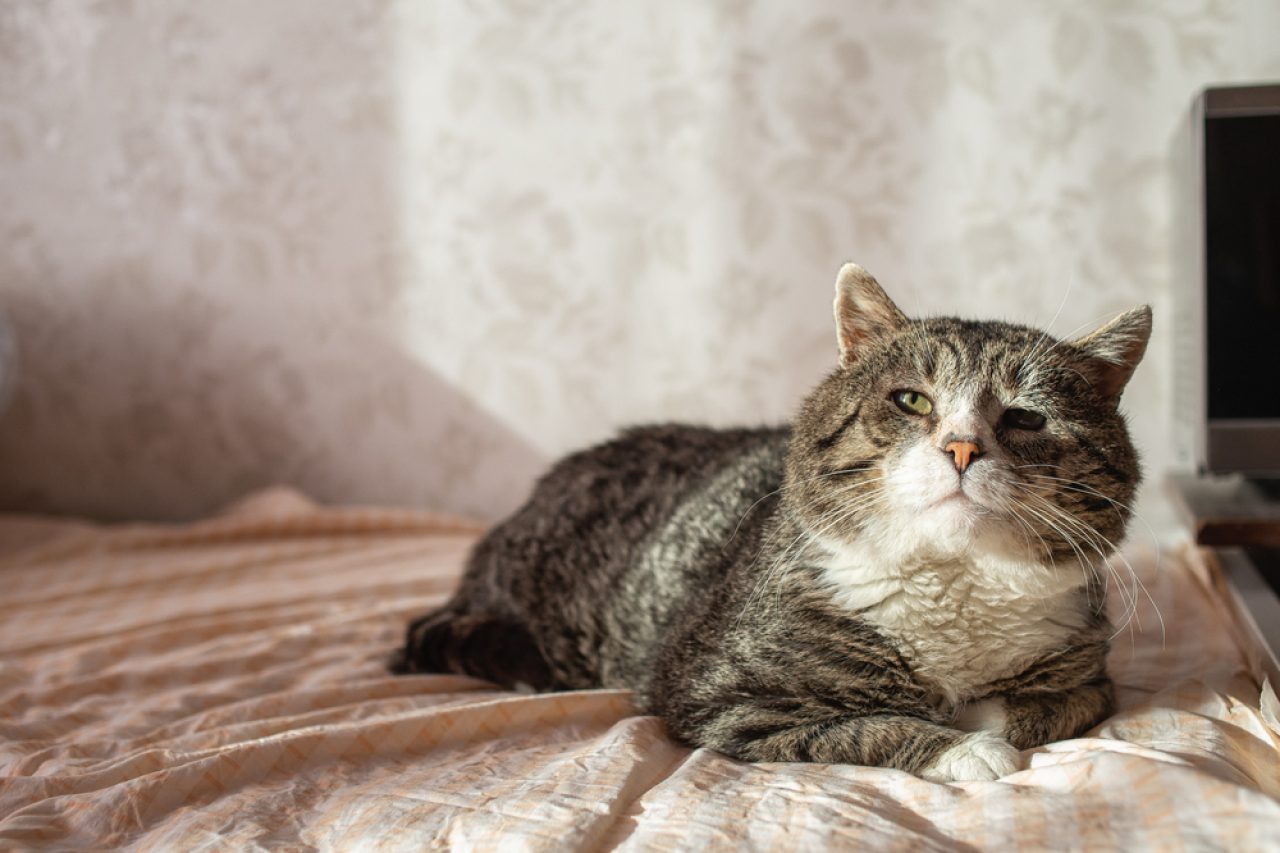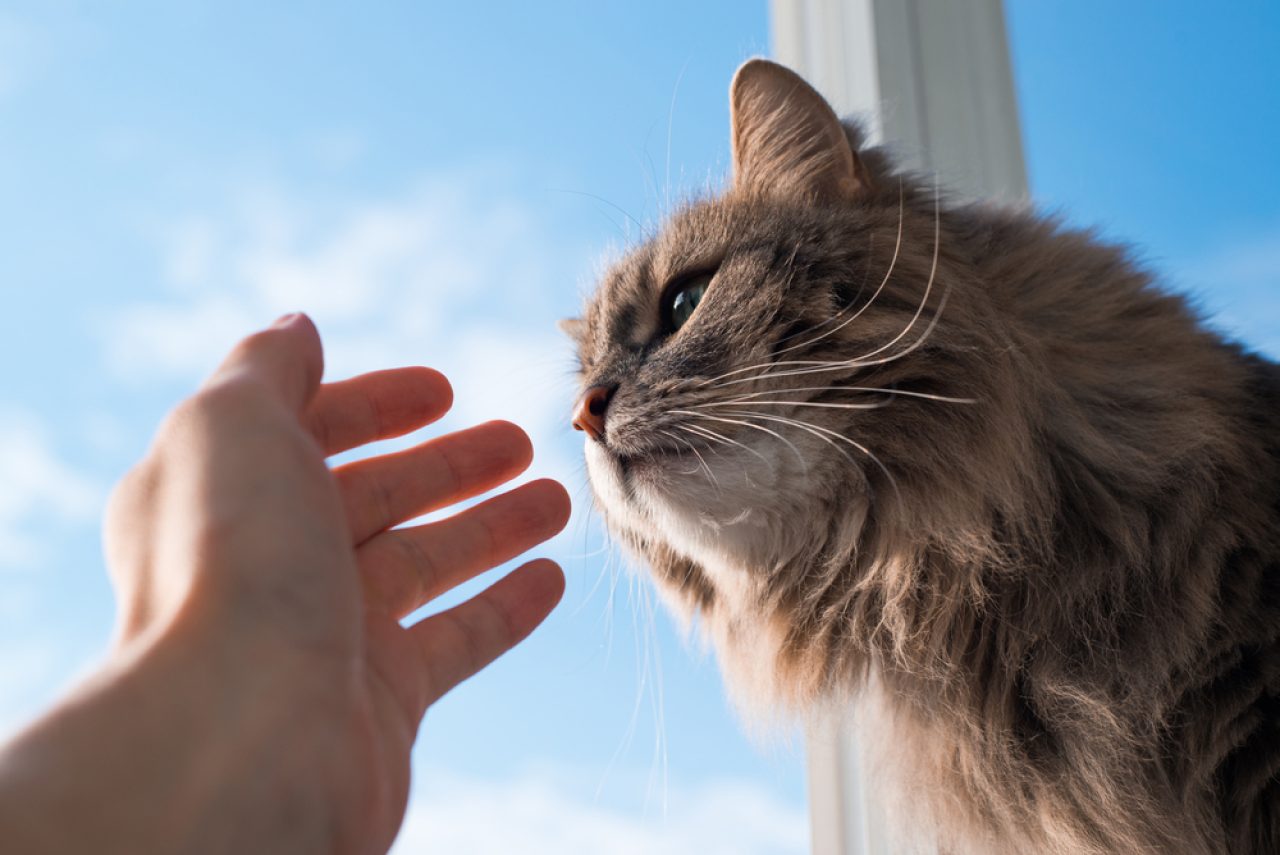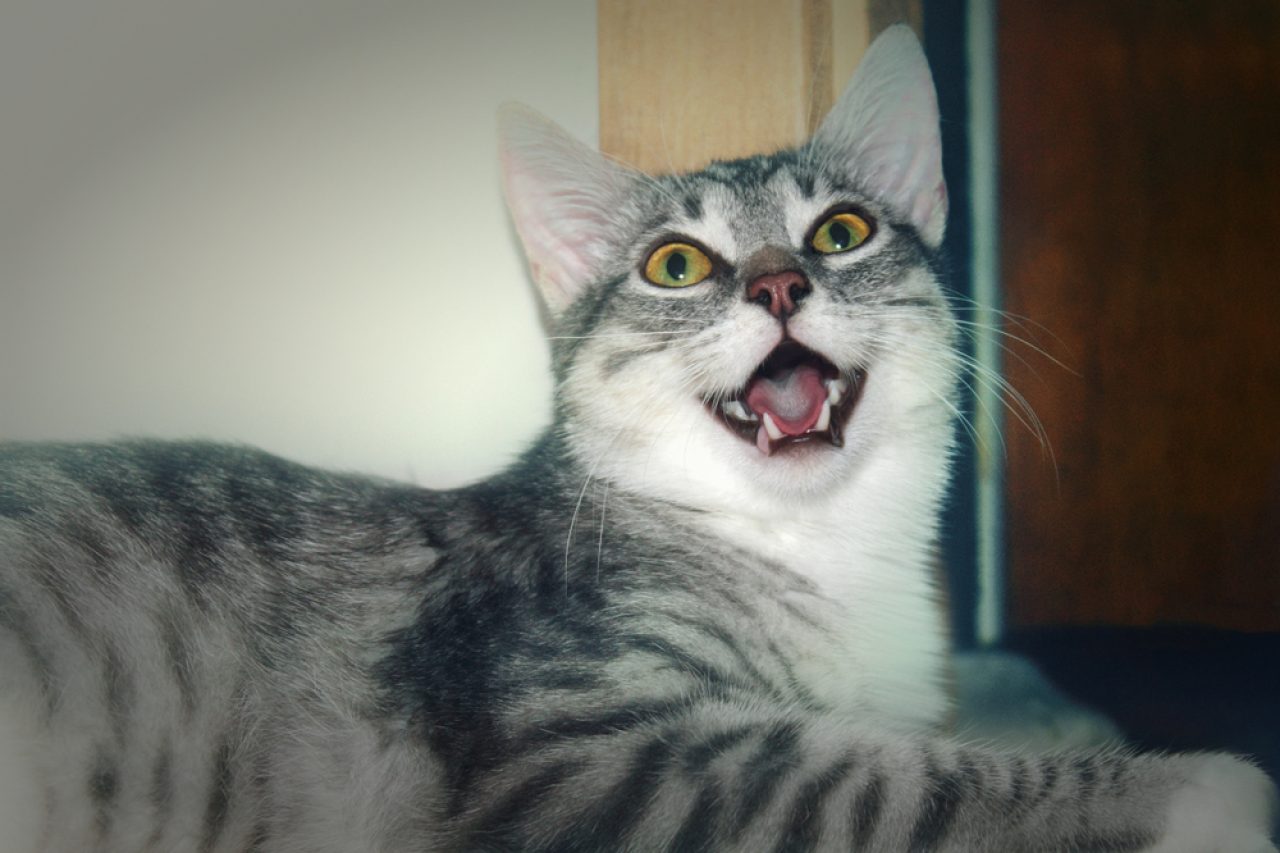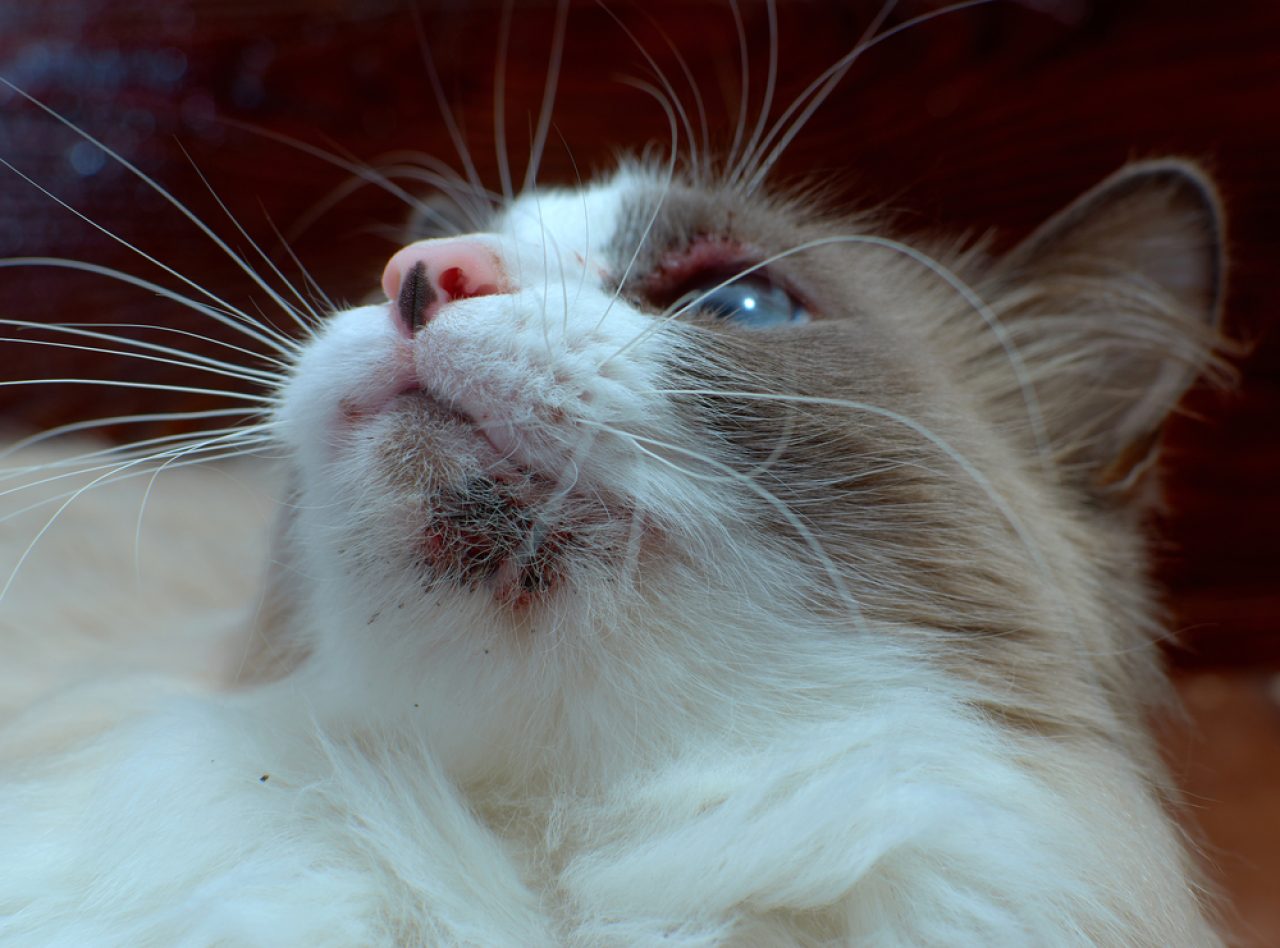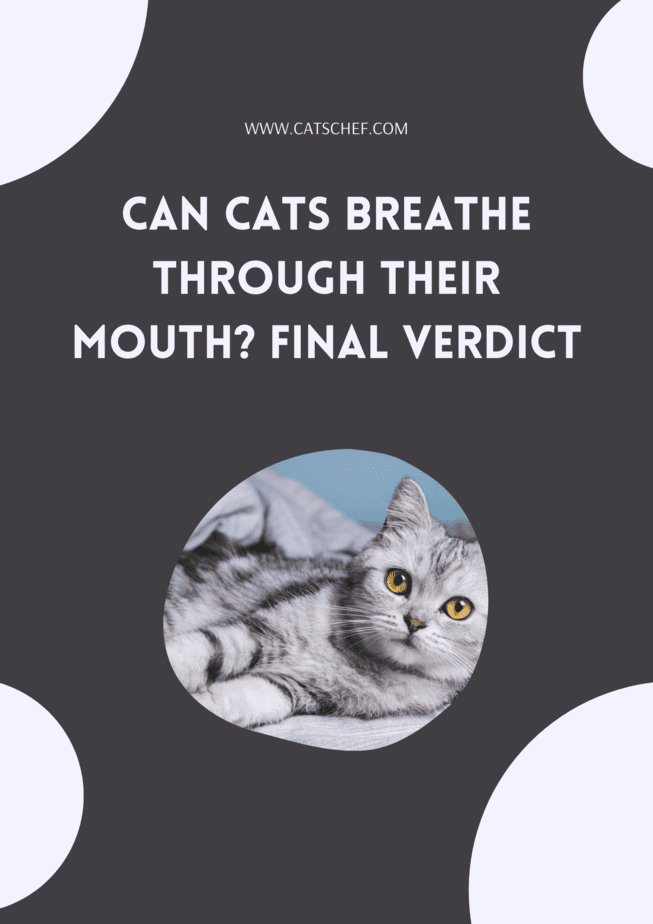📖 Table of Content:
Can cats breathe through their mouth? I can’t even begin to imagine what made you think about this. Perhaps something happened that switched on the alarm bells in your head.
Maybe your pet just randomly started breathing through her mouth and you’re thinking “Oh, this is new. What does this even mean?” Don’t worry, it’s natural to be concerned if your cat appears to be breathing through their mouth, but there’s something you should ask yourself first.
Is your pet only breathing through her mouth or exhibiting another strange behavior that’s accompanied by this habit? Either way, I think we’d all like to know now “can cats breathe through their mouth?”
Well, the good news is that yes, cats can breathe through their mouths, but this really isn’t typical behavior. Felines are intended to take long, smooth breaths via their nose.
Unfortunately, breathing through the mouth can indicate health issues. For instance, it can be caused by blocked nasal passages or by some other CATastrophic medical disorders.
In this article, we’ll try to explain why your cat may be breathing through her mouth, and not the usual way. Also, we’ll leave here some tips on what you can do to assist your furbaby.
Note to yourself: if you see your cat breathing through her mouth, you should be concerned. This is not a common occurrence, and you should probably seek out a veterinarian’s advice.
When can cats breathe through their mouth?
I understand why you’d be concerned if you saw your pet taking breaths through her mouth. Usually, we don’t see such behavior very often.
If you’ve ever cared to take a minute and observe your pet, you would’ve figured out the way she breathes. You’ve probably noticed how quiet and tranquil she seems to be. They can be so still that sometimes, I’ll shake my pet awake to make sure she didn’t stop breathing.
All in all, felines don’t make much noise and their breaths are scarcely audible, with their chest and belly slowly rising and falling. This is because our furry friends breathe through their noses, which doesn’t require a lot of movement.
On the other hand, if you’ve seen your cat acting all weird and breathing through an open mouth, you should be concerned.
Perhaps it doesn’t have to do anything with breathing? Is it possible that they’re panting in order to communicate something else?
Cats may, in fact, breathe via their mouths, but this is exceedingly unusual and is typically caused by clogged nasal passages, acute stress, or a serious medical condition.
This article will go through how cats breathe, what it implies if your cat is breathing through her mouth, and what you should do about it.
Is it normal behavior?
The respiratory system of a cat is quite similar to that of humans, with three primary parts: the mouth and nose, the lungs, and the trachea, which is the windpipe that connects the two.
This system is responsible for taking in oxygen from the air and delivering it throughout the body. It also has the role of removing waste gases such as carbon monoxide as well.
When we examine it closely, we can see that our respiratory systems function somewhat differently. Humans don’t have a hard time breathing through their mouths. You can do it however you like without any problems.
Cats, on the other hand, are obligatory nose breathers, unlike humans. Yes, although it might sound funny, this is a thing.
This implies that they will always breathe through their noses, and the only time they will ever breathe through their mouths is if there’s an underlying issue. Perhaps your pet’s unable to get enough oxygen into her body through regular nasal breathing alone.
All in all, cats can breathe through their mouths, but this is usually an indicator that there’s something wrong with your pet. Obviously, something is preventing her from taking deep breaths through her nose and it’s up to you to find out what it is.
Why is my cat breathing through her mouth?
There are various reasons why a cat could breathe out of her mouth, but it generally isn’t a good indication.
It typically implies that your cat is having difficulty breathing or that her nasal airways are obstructed and congested, which can extremely impair her capacity to breathe properly.
Obviously, this function is crucial to every being. We can’t go too long without taking in some deep breaths, so it’s definitely one of the worst things to experience. Imagine being an animal who can’t breathe and is unable to voice the problem.
1. Feline asthma
Unfortunately, just like humans, cats can get asthma. It’s a respiratory illness that makes breathing challenging, much as it is prevalent in people.
This commonly manifests in our furry companions between the ages of 2 and 7. Female cats, as well as particular breeds like Siamese and Himalayan cats, are particularly susceptible to this issue.
Cats with asthma may demonstrate open-mouth breathing to allow more air into their lungs. Also, if your pet has asthma, she might exhibit other symptoms and signs, such as loud, rapid breathing, weakness, and lethargy.
If you see your pet vomiting all of a sudden, it could also be an indicator of this problem. Gasping for air and coughing continuously would also be some of the obvious signs.
Some allergens can set off an inflammatory reaction which eventually causes asthma. In response, your cat’s immune system will begin producing chemicals. This will cause inflammation in her airways, as well as constrict her trachea, thus obstructing the airways and nasal passages.
Cats can have allergies to a variety of substances, just like their two-legged companions. Things like aerosol sprays, cigarette or candle smoke, cat litter dust, home cleansers, pollen, or dust mites are examples of common allergies.
Make sure to observe your pet’s behavior and seek any abnormalities. Cats know when you’re sick, but we don’t have those powers, unfortunately!
2. Heatstroke
This is a real nightmare for any pet owner. Heatstrokes are a lot more common than you might think. If your cat’s trying to breathe through her mouth, perhaps she’s attempting to cool down a bit.
Usually, this behavior is accompanied by drooling and panting. It might look just like a dog on a hot summer day with drool dripping from its mouth.
However, felines have their own physiological cooling systems, such as sweat glands on their paws and noses. Also, cats have the ability to withstand high environmental temperatures. This is primarily the result of behavioral adaptations that happened over time.
For instance, you’ll notice your cat being lethargic or less active, as well as sprawled out on the floor during the summer. She might also pick up on her grooming sessions and lick her fur excessively.
Even though felines have their own tips and tricks to keep themselves cool, they’re still susceptible to overheating under dangerous circumstances.
Unfortunately, this can lead to heatstroke, a form of hyperthermia. Other symptoms next to panting and breathing through the mouth include red and swollen gums, gagging, as well as slumber, and lassitude.
If you don’t act quickly, your pet’s body temperature might continue to rise. This can easily lead to an increased heart rate after which she may go into a coma. All of this can be accompanied by convulsions, and the worst-case scenario is death.
If you live in an area with a warm climate, make sure to keep your cat indoors during the summer. Otherwise, provide her with shade and a source of fresh water.
3. Upper respiratory infections (URI)
When will cats breathe through their mouths? It’s possible your pet has upper respiratory issues (URIs) if she exhibits such behavior. These infections affect the upper airways, including the nose, throat, and sinuses, rather than the lungs.
Next to the unusual open-mouth breathing, your feline might have other common symptoms. These include a runny or congested nose, drooling, coughing, and sneezing.
Besides, you might notice clear eye and nasal discharge accompanied by nasal or oral sores. Sick cats sleep in the bathtub as well. It isn’t as common, but if you notice this odd behavior, act on it.
These sorts of infections are similar to the common cold or the flu in humans and most of them (80–90%) are brought on by viruses. Take your cat to the vet right away if you think she may have a URI.
Upper respiratory infections that aren’t treated can result in pneumonia or other dangerous consequences that could easily be prevented.
4. Too much exercise
When can cats breathe through their mouth? In some circumstances, your cat’s breathing through her mouth may not be an indication of a major illness or medical emergency. Perhaps she just had too much exercise.
If you have a feline that enjoys sunbathing and chilling in her bed, she might be overwhelmed with all the running around the house. If this takes place, her strange breathing patterns aren’t really a cause for concern.
You’d be able to easily tell apart this open-mouth breathing from the one that indicates serious issues. Other symptoms like coughing, sneezing, or vomiting that are usually present in some diseases won’t make an appearance.
However, you might notice your cat being a bit sluggish. Simply put, she’s just trying to recover from her physical activity. Usually, her breathing pattern will regulate and come back to normal quickly.
Also, keep in mind that while panting after activity in cats is feasible, it occurs far less frequently than it does in dogs. Even if the wide-mouth breathing was transient, it would be a good idea to bring it up with your veterinarian. It’s always better to be safe than sorry, after all!
5. Pleural effusion
The pleural sac, a double-layered membrane, surrounds each of the cat’s lungs. Pleural effusion refers to the accumulation of abnormally large amounts of fluid in the area between the two membranes that surrounds the lungs.
Your cat has trouble breathing because this fluid buildup stops the lungs from expanding as much as they would usually do. Consequently, if a cat has a pleural effusion, she may try to enhance airflow by breathing via her mouth.
In certain cases, a cough, tiredness, and lack of appetite are all possible, in addition to shallow and fast breathing. Either excessive fluid production or insufficient fluid outflow might result in pleural effusion.
Some typical reasons for these situations in cats include infection with bacteria, elevated blood pressure, and heart disease. Other situations include trauma, tumors of the lungs and chest, diaphragm hernias, as well as infectious peritonitis.
6. Allergies
Allergies can be a real pain in the neck. They can be challenging to control, sometimes even impossible. However, you can try and keep your pet inside where there’s an air filter to help get rid of the particles.
Sometimes, the symptoms of an asthma attack and allergy can be similar. Therefore, it’s always recommended to check with your vet and determine the reason behind your pet’s new behavior.
Cats can breathe through their mouth when they’re experiencing allergic reactions to various substances. Other than that, your feline might have something stuck in her throat.
It might appear to you that she’s just reacting to the allergens as usual when there’s something actually lodged in her throat. Make sure to act quickly and inspect the behavior closely just in case.
7. Feeling stressed or shocked
When cats get startled or are under stress, they might breathe through their mouth. It’s the same with some anxious people when they experience panic episodes. Usually, these are characterized by uncontrollably heavy breathing.
In addition to panting, agitated cats typically exhibit other symptoms, such as appetite loss and being distant. For instance, your pet might refuse to use her litter box. This isn’t usually a clear sign of distress since cats can go without using the bathroom for a long time.
On the other hand, some symptoms might be clear indicators that there’s a problem. These include increased meowing, hostile behavior towards you (or your loved ones), and a change in her grooming sessions.
If she’s showing you all the signs of being under stress, it’s crucial you try and help your cat feel at peace again. Cats depend on consistency, and even small disruptions to their schedule can result in severe stress or even panic attacks.
Unexpected weather changes, having other animals or strangers near your house, or traveling are a few examples. If you just moved to a new place recently, it might be what’s messing with your feline.
You will need to assist your cat in adjusting to the new normal because certain changes are unavoidable. Making sure that everything else in their life and routine remains the same is one approach to do this. Additionally, giving them lots of places to hide when necessary may be quite beneficial.
8. Old age
Can cats breathe through their mouth? When will they exhibit this behavior? Does age play a role in all of this?
It’s possible your pet’s having some breathing issues if she begins breathing through her mouth. It isn’t uncommon for older cats to experience this over the years.
Cats with dyspnea typically display a number of related clinical indications in addition to the evident difficulty breathing in and out. For instance, their respiration may be notably fast.
Also, they could cough regularly and pant loudly with their mouths open. They can even look like they’re choking and about to vomit as they lower their heads and stretch their bodies forward.
Dyspnea can be either acute (occurring within a few hours) or chronic (developing gradually over several weeks or months). The main causes include foreign objects in the nasal passages, congestive heart failure, and lung tumors or other serious issues.
Why is my cat opening her mouth?
Cats can appear to breathe through their mouth even when they’re not. So why would your feline have her mouth wide open if she isn’t taking any air in?
If your cat’s mouth is open and you can’t hear her breathe, this might look totally weird to you. However, she can occasionally open her mouth at random times and remain that way for a considerable amount of time before closing them.
This can take place if she smells something intriguing and is attempting to obtain more of that fragrance in order to recognize it. Holding her mouth ajar will enable her to receive more information via the sense of taste as well as smell.
My cat sounds like she can’t breathe! What’s happening?
There are several causes for your cat to sound as though she’s having trouble breathing. For instance, if your cat is dozing off, she could only be snoring.
Additionally, minor sinus infections and allergies might partially clog her teeny tiny nose, whistling when she breathes. This might sound funny but it’s anything but.
It’s likely that your cat’s only having a snooze with these funny noises. That is unless she exhibits symptoms of discomfort or appears to be coughing or gagging.
On the other hand, if she’s never snored before or made such noises, it might be the right time to take a trip to the vet. Any sudden changes like these might indicate an underlying medical problem.
Tips to help your cat breathe better
There are instances when there’s little you can do to improve your cat’s breathing. If your furry friend has moderate asthma, for example, there isn’t much you can do.
Your vet might give you a prescription for medicine to assist the breathing. Though these remedies won’t always assist a cat who’s already having trouble breathing, there are some easy things you can do to help your feline breathe better.
1. Avoid excessive products
Your scented candles might bring you joy and relaxation from time to time. However, this probably isn’t as appreciated by your cat. Products with scents often include chemicals and oils that are too strong for her, stressing her kidneys, liver, and lungs.
If you notice this is the case, try avoiding all these fragrances. Additionally, diffusers with essential oils can be especially harmful.
Despite the fact that some essential oils may be safer than others, many of them are hazardous, and it’s not always obvious which ones you should stay away from.
For instance, lavender has a relaxing effect on people and dogs but is extremely harmful to cats. Most cats automatically shun noxious odors and seek purer, safer air.
Additionally, keep a careful eye on your cat and remove them from the perfumed area right away if they exhibit any symptoms of unusual weariness or respiratory problems.
2. Purchase an air filter
Get an air filter to keep the air cleaner and assist your cat in avoiding potential allergens, especially if you’re aware that your cat suffers from allergies or asthma.
After all, this might also be a good investment for you. Air filters help cleanse the air from the particles that cause you to sneeze, cough, and exhibit other symptoms.
3. Make sure she stays hydrated
We all know that cats don’t have a strong liking for water. They don’t usually drink much water since they mainly hydrate through their food.
However, by offering several clean water sources throughout your house, you may encourage your cat to keep hydrated and benefit from better breathing.
If you want to assist her in keeping her more hydrated, you might also think about introducing ice as an enrichment item. You can offer her an ice cube, especially on hot summer days. Next to being a source of hydration, it will definitely entertain her for some time.
All in all, can cats breathe through their mouth?
We all wanted to know the answer to this question and now we found out that the answer is yes! However, it isn’t typical behavior for felines.
They don’t normally do this because breathing through their nose is more natural to them. When nose breathing is too laborious or they aren’t getting enough oxygen or releasing enough waste gases as they should be, they switch to mouth breathing.
Upper respiratory infections, pleural effusion, and feline asthma are a few examples of illnesses that might cause open-mouth breathing. Additionally, open-mouth breathing can be used to cool down while suffering from heatstroke.
Perhaps you don’t need to be too concerned if you believe stress or exercise could be to blame. In any case, though, I advise you to take your cat to the doctor.
Any significant ailment that’s ignored might have negative effects and has to be ruled out as soon as possible.
